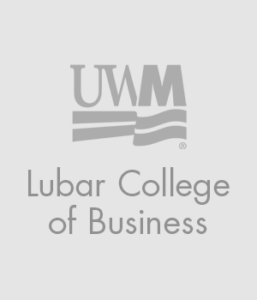MS in Digital Supply Chain Management
STEM-designated
Digital transformation driven by Industry 4.0 has given rise to demand for graduates trained in digital supply chain management. With e-commerce continuing to disrupt traditional supply chains, companies are increasingly adopting new digital technologies and developing new capabilities in artificial intelligence, IoT, and robotics as part of these transformation efforts.
This program is designed for business professionals seeking an in-depth understanding of contemporary digital supply chain management. You will gain a competitive advantage as you master the design of digital supply chain solutions; gain digital skills to set up real-time, software-enabled systems for monitoring and managing global supply chains; and develop systems management skills for conducting systems modelling and simulation studies of supply chain components and their integration.
Now accepting applications for the Fall 2023 semester. This program can be completed full-time or part-time.
Program Type
Master’s
Program Format
On Campus
Digital Supply Chains and Industry 4.0
Supply chains worldwide are being converted from analog operation to being controlled through the analysis of digital signals from the chain itself. Doing so allows the chain to be more responsive to customer demands and be less expensive to operate. Digital supply chains are intelligent in that they employ in sequence, sensors, data, blockchain-based data sharing, analytics, and ultimately, the use of results from analytics to manage the chain’s operation and improve its efficiency.
This is part of a broader trend in manufacturing and service operations motivated by Industry 4.0, which centers around the use of data from sensors and IOT devices to improve – through machine learning techniques – the operation of running a business from order delivery and manufacturing to customer service and market identification.
What Differentiates this Program?
The Lubar College of Business MS in Digital Supply Chain Management is a unique program and one of the first in the nation designed for students to explore emerging technologies such as IoT, machine learning, blockchains, connected systems, sensors, RFID, digital twins, and cloud architecture, in addition to enterprise resource planning, big data, and real-time analytics.
Students in the program also have a unique opportunity to take coursework and complete projects support by UWM’s Connected Systems Institute, a multidisciplinary center that facilitates education and thought leadership related to advanced industrial processes. The program also benefits from the faculty and expertise of the Lubar College’s SAP University Competence Center – one of only five UCCs in the world.
Who Should Enroll?
This degree will help advance the careers of more recent college graduates as well as experienced supply chain professionals seeking to step into more technical roles in digital transformation, Industry 4.0, systems and solutions development, or systems and project management. While most will have undergraduate degrees in business, engineering, or computer sciences, other majors may also apply.
Master’s in Digital Supply Chain Management
(30 credits)
In this program, you will acquire in-depth supply chain functional area knowledge in procurement, production, logistics, warehousing, enterprise solution information systems, Lean and Six Sigma, and process improvement. You will also be equipped with data management and analysis skills in ERP (SAP), predictive and customer analytics, and supply chain optimization. Cutting-edge topics covered throughout the curriculum include IoT, blockchain-based ledgers shared by all chain members, cyber-physical Digital Twins of supply chain components, cybersecurity, tracking and tracing in supply chains using sensors, machine learning, artificial intelligence, and Big Data analytics.
Required Courses (15 credits)
BUS ADM 783 Modeling and Analytics in Supply Chains
BUS ADM 787 Managing Connected Supply Chains
BUS ADM 788 Digital Supply Chain Management: Tracking & Tracing (1 cr.)
BUS MGMT 711 Global Supply Chain Strategies
BUS MGMT 732 Enterprise Resource Planning
IND ENG 741 Foundational Technologies for Connected Systems (1 cr.)
IND ENG 742 Cloud Architecture for Connected Systems (1 cr.)
Supply Chain & Operations Management Elective Courses (6 credits)
Students choose at least two of the following:
BUS ADM 781 Enabling Supply Chains Using SAP
BUS ADM 782 Supply Chain Technology and Simulation
BUS ADM 785 Project Management and Innovative Operations
BUS ADM 786 Supply Chain Logistics Management
BUS ADM 789 Service Operations Management
Other Elective Courses (9 credits)
Students choose at least three of the following:
BUS ADM 737 Managerial Decisions & Negotiations
BUS ADM 742 Big Data in Business
BUS ADM 745 Artificial Intelligence for Business
BUS ADM 811 Process and Work-Flow Management
BUS ADM 812 Machine Learning for Business
BUS MGMT 709 Predictive Analytics for Managers
BUS MGMT 723 Managing and Negotiating Across Cultures
BUS MGMT 744 R Programming for Business Analytics
Students admitted to the MS Digital Supply Chain Management program without sufficient background may need to complete additional courses. Please contact the Graduate Student Services Office for more information.
For just a few more credits, you can also earn:
Graduate Certificate in Enterprise Resource Planning
Graduate Certificate in Business Analytics
The faculty within the Lubar College’s Supply Chain, Operations Management, and Business Statistics area offer a wide range of expertise, significant research contributions, and important industry experience and connections. Within Supply Chain & Operations Management, faculty knowledge spans logistics, transportation, forecasting, quality management, buyer-supplier relationships, supply chain management, and operations management. Within Business Statistics, faculty expertise includes statistical analysis, statistical quality control, and information measures in decision making.
- Professor, Supply Chain, Operations Management & Business Statistics
- Dean's Research Fellow
- alwan@uwm.edu
- 414-229-6253
- Lubar Hall S497
- Assistant Professor, Supply Chain, Operations Management & Business Statistics
- jiand@uwm.edu
- 414-251-6994
- Lubar Hall S493
- Teaching Faculty, Supply Chain, Operations Management & Business Statistics
- Director, Supply Chain Management Institute
- kosfeld@uwm.edu
- 414-229-2673
- Lubar Hall S490B
- Associate Professor, Supply Chain, Operations Management & Business Statistics
- kuzu@uwm.edu
- 414-229-6208
- Lubar Hall S485
- Professor, Supply Chain, Operations Management & Business Statistics
- tsmunt@uwm.edu
- 414-229-3233
- Lubar Hall N393
- Professor, Supply Chain, Operations Management & Business Statistics
- xyue@uwm.edu
- 414-229-4657
- Lubar Hall S491
Admission Requirements
We’re excited to have you join the Lubar College of Business and we hope the following information will be useful as you start the application process for graduate school.
We will carefully consider all elements in your application file as we determine if you will be a good fit for our graduate programs. However, meeting the minimum requirements does not guarantee admission.
- Completion of an Undergraduate Degree
Applicants must hold a degree from a regionally accredited undergraduate institution in the United States or from a recognized institution in a foreign country. Many 3-year bachelor’s degrees are accepted as equivalent to the U.S. 4-year bachelor’s degree for purposes of admission. - Cumulative GPA of 2.75
A minimum cumulative undergraduate grade point average (GPA) of 2.75 on a 4.0 scale, or an equivalent measure on a grading system that does not use a 4.0 scale. Those whose undergraduate GPA is below 2.75 must provide further documentation. - English Proficiency for International Students
All UWM Graduate School applicants are required to demonstrate a suitable level of proficiency in the English language. - Official GMAT & GRE scores.
- A minimum GMAT score of 500 total (Quantitative score of 36, Verbal score of 17 for international students).
- A minimum GRE score of 305 total (Quantitative score of 149, Verbal score of 142 for international students).
- GMAT/GRE Waiver Policy
How to Apply
You will need to submit the following to complete the UWM Graduate School application:
- Transcripts from every institution of higher learning attended will be needed. Unofficial transcripts can be uploaded at the time of application but official transcripts will be required upon acceptance. Transcripts should be emailed directly to the UWM Graduate School.
- Submission of official GMAT or GRE scores must be sent directly from GMAC or ETS.
– GMAT CODE: 1896
– GRE CODE: Institution Code 1473, Dept. Code 4204 - An updated resume.
- Statement of Purpose (1 to 2 pages on why you would like to earn your degree at the Lubar College of Business and your plans after graduation.)
- One or two Letter(s) of Recommendation are preferred but not required.
- In addition to the items listed above, international students must supply the following:
– All foreign institutional transcripts from any institution of higher learning attended.
– Applicants whose native language is not English, or who have not earned a degree in the United States, must submit TOEFL scores directly from ETS. - Submit the $75.00 application fee.
Priority application deadlines are as follows but may be subject to change:
- For any Fall semester: July 15th in the same calendar year
- For any Spring semester: November 15th in the same calendar year
- For any Summer semester: April 15th in the same calendar year.
Tuition Information
Please visit the following website for the most up-to-date tuition information based on the semester you will attend, and to review the Business Masters Fee schedule.







